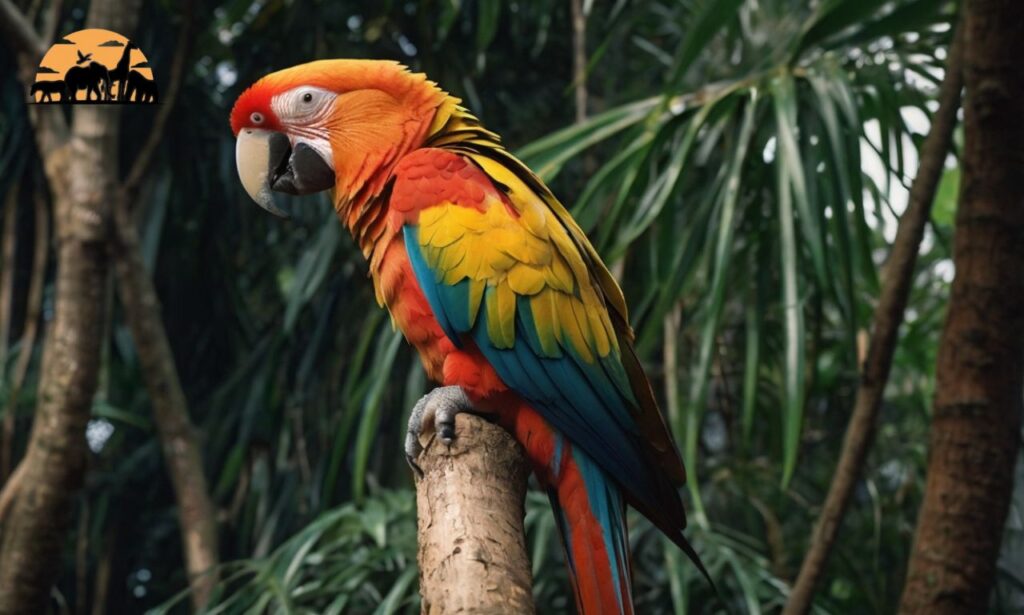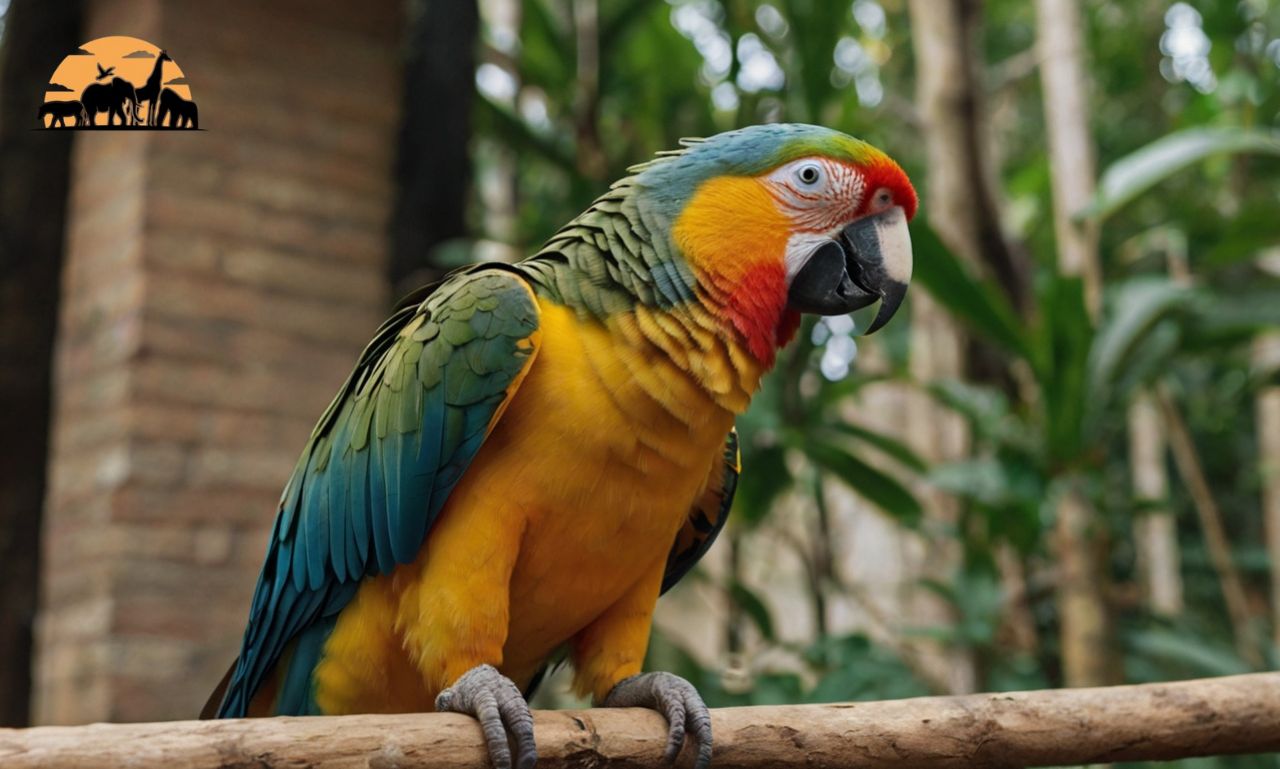Parrots are known for their vibrant colors, intelligence, and charismatic personalities. But how long do parrots actually live? If you’re thinking of adopting a parrot or are simply curious about these beautiful birds, understanding their lifespan and the factors that influence it can be helpful. In this article, we’ll dive into the lifespans of different parrot species, what factors affect their longevity, and how to care for your parrot to ensure a long, healthy life.
Average Lifespan of Parrots
The lifespan of parrots varies widely across species. While some small parrots may only live around 10-15 years, larger species can live several decades—some even reach over 80 years! Here is a breakdown of the average lifespan by species type:
- Budgerigars (Budgies): 5–10 years
- Cockatiels: 15–25 years
- Conures: 20–30 years
- African Grey Parrots: 40–60 years
- Amazons: 30–50 years
- Macaws: 50–80 years
- Cockatoos: 40–70 years
These numbers are average lifespans, and individual parrots may live longer or shorter lives depending on various factors, including diet, environment, and genetics.

Key Factors Affecting Parrot Lifespan
Several elements can influence how long a parrot lives, including:
- Species: As we saw above, lifespan varies significantly depending on the species. Generally, larger parrots tend to live longer than smaller ones.
- Diet and Nutrition: Proper nutrition is essential to a parrot’s health and longevity. Parrots require a balanced diet rich in fruits, vegetables, nuts, seeds, and specialized pellets to meet their nutritional needs.
- Living Environment: Parrots need a clean, stimulating environment. A spacious cage with plenty of toys for mental stimulation is crucial, along with regular opportunities to explore outside the cage.
- Exercise and Mental Stimulation: Parrots are intelligent and active animals. Daily interaction and mental stimulation, such as toys, puzzles, and training, can help prevent boredom and related health problems.
- Veterinary Care: Routine check-ups with an avian vet can help catch health issues early. Vaccinations and treatments for parasites are also important.
- Social Interaction: Parrots are social animals that thrive on interaction with their owners or other birds. Isolation can lead to stress and health problems, shortening their lifespan.
- Genetics: Genetics play a significant role. Parrots from strong, healthy bloodlines tend to live longer.
Lifespan by Species: A Closer Look
1. Budgerigars (Budgies)
- Lifespan: 5–10 years
- Description: These small, colorful birds are one of the most popular pet parrots due to their friendly personalities and affordability. Although they don’t live as long as larger parrots, budgies can enjoy a healthy life with proper care.
2. Cockatiels
- Lifespan: 15–25 years
- Description: Cockatiels are known for their affectionate nature and are a great choice for beginners. With proper diet and care, they can live well into their twenties.
3. Conures
- Lifespan: 20–30 years
- Description: Conures are medium-sized parrots with lively personalities. They require mental stimulation and exercise to thrive and live long lives.
4. African Grey Parrots
- Lifespan: 40–60 years
- Description: Known for their remarkable intelligence, African Greys are some of the longest-lived parrots. They bond deeply with their owners and need significant mental stimulation to stay healthy.
5. Amazons
- Lifespan: 30–50 years
- Description: Amazons are social, playful parrots that enjoy interacting with their families. With proper care, they can live up to 50 years or more.
6. Macaws
- Lifespan: 50–80 years
- Description: The iconic, large Macaws are among the longest-living parrot species. Known for their stunning plumage and social nature, they require ample space, a varied diet, and plenty of stimulation.
7. Cockatoos
- Lifespan: 40–70 years
- Description: Cockatoos are affectionate and highly social parrots. They form strong bonds with their owners but need plenty of attention to avoid behavioral problems.

Tips for Extending Your Parrot’s Lifespan
- Balanced Diet: Offer a balanced diet of high-quality pellets, fresh fruits, vegetables, and occasional treats. Avoid feeding your parrot caffeine, chocolate, avocado, or salty foods, as these can be harmful.
- Regular Exercise: Allow your parrot to exercise outside its cage in a safe, enclosed area. Physical activity keeps their muscles strong and helps prevent obesity-related issues.
- Social Interaction: Spend time interacting with your parrot every day. Parrots are social and need attention to stay happy and healthy.
- Provide Mental Stimulation: Rotate toys regularly to keep your parrot engaged. Consider foraging toys, puzzle feeders, and other activities to challenge their minds.
- Routine Health Check-Ups: Take your parrot to an avian veterinarian regularly for health check-ups. Early detection of health issues can make a significant difference in lifespan.
- Clean Environment: Regularly clean the cage and replace bedding to reduce the risk of infections. Make sure your parrot’s living area is free from harmful substances, such as smoke or aerosols.
- Avoid Stress: Minimize stressful situations for your parrot, such as sudden changes in environment or loud noises, as stress can lead to health issues.
Read About What Do Birds Eat?
Watch
Conclusion:
Parrots are remarkable animals with unique personalities, but they require commitment and care to live long, fulfilling lives. While some species live longer than others, each parrot’s lifespan depends on various factors, including diet, environment, and social interaction. Whether you have a small budgie or a grand macaw, providing a balanced diet, mental stimulation, regular veterinary care, and plenty of love will give your feathered friend the best chance for a long and healthy life.
Read About Hypoallergenic Dogs
FAQs:
1. What is the average lifespan of a parrot?
Parrot lifespans vary by species. Small parrots, like budgies, live around 5–10 years, while larger species, like macaws, can live up to 50–80 years or more with proper care.
2. Which parrot species lives the longest?
Macaws and some Cockatoos are among the longest-living parrot species, with lifespans often reaching 50–80 years.
3. Can a pet parrot live as long as a human?
Yes, large parrots like macaws and African Greys can live 50 years or more, meaning some may live as long as their human caretakers, depending on their age at adoption.
4. What factors affect a parrot’s lifespan?
Key factors include species, diet, exercise, mental stimulation, veterinary care, and social interaction.
5. How can I help my parrot live a longer life?
Provide a balanced diet, regular exercise, social interaction, mental stimulation, routine veterinary care, and a clean, low-stress environment.

